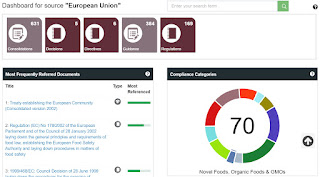
In this guest blog, Mr. Srinaath Krishnamachari, MD of UI Tech Solutions, draws on his experience of over 17 years in the publishing industry to write about the changing face of content creation. As the Chief Evangelist for technology-driven publishing solutions, he seeks to address the need of publishers to provide relevant customized content separate from freely available information.
In the last five years, publishers have seen readers’ relationship to content change dramatically. A 2016 Pew Research study stated that a majority of the public—62% in the US—get their news from social media rather than traditional media outlets. A 2016 BioMed Central study states that physicians are rapidly turning to social media in order to immediately share health and research information with their patients and each other.
RESEARCHERS PUBLISH DIRECTLY
The constant access to breaking news, studies, and research through websites and social media, often for free via social media or open access, has challenged the timing of traditional publishing cycles and threatened the methods by which publishers tend to generate revenue. Researchers are turning to publishing directly themselves to publicly accessed websites, as Nobel Laureate Carol Greider did last year, or via other channels in order to get the information out into the world, taking valuable information out of the hands of traditional publishers.As publishers try to adapt to this changing face of their audience and the industry, they must focus on trying to release research more quickly in order to respond to time-sensitive issues and creating sophisticated metadata that allows for content to be easily found amid the deluge of content.
PUBLISHERS ADAPTING TO THE SPEED OF RESEARCH
To help publishers adjust to this brave new world, PageMajik has created a product suite based on the personal consulting model their parent company S4Carlisle has offered publisher clients for nearly two decades. PageMajik allows publishers to automate significant portions of the publishing process from author submission to final production in order to improve efficiency and timeliness of content. Current publishers using the system have noted that their efficiency has improved by an average of 40%.For publishers and authors publishing time-sensitive research, cutting the publication cycle in half can not only make their research more relevant but also speed up technological advances, scientific discovery, and medical breakthroughs.
SIMPLIFYING THE PROCESS
By simplifying the publishing process and automating some of the more detailed and time-consuming technical work, publishers can focus more directly on the much more important task of identifying notable research.PageMajik simplifies the process by optimizing and organizing existing content and resources while adapting to a publisher’s current systems and workflow. Working in a web-based authoring environment and InDesign, PageMajik does not require additional training and allows everyone along the publishing cycle to work on the document. PageMajik also performs a number of detailed tasks that are time-consuming for publishers, such as identifying inconsistencies and anomalies in usages and forms of words (hyphenations, allowed prefixes, precise usages) using pattern-based rules, and grammatical discrepancies using built-in English language rules.
MAKING RESEARCH EASY TO FIND
A challenge that publishers and researchers alike face upon release of published research is how to reach the audience for the work. Significant studies have been done on the lag between publication and discovery of research, with academics struggling with how to find the right information amid the deluge of content.PageMajik has created the ability for publishers to do chapter level metadata tagging, allowing for a deeper level of search functionability and, thus, easier discoverability.
As the audience for research and scholarly publishing expands and changes even more toward the digital and direct outreach, publishers must find the ways to work quickly and easily adapt their current systems to stay not only competitive but viable. PageMajik provides a simple, cost-effective method for publishers to continue to be a vital part of the publishing and research process.
About PageMajik: PageMajik is a publishing workflow management system that combines all of the individual steps of the publishing process into a seamless product suite to improve workflow and efficiency. PageMajik’s product suite has an in-built Content Management System that facilitates storage, retrieval and reuse of data at any given time. The CMS has been customized to suit publishing workflows, with version control features and user access control.
• Facebook: https://www.facebook.com/PageMajik-145323369390543/
• Twitter: https://twitter.com/WeArePageMajik
• LinkedIn: https://www.linkedin.com/company-beta/13394487/
PageMajik is a proud sponsor of the ALPSP 10th Anniversary Annual Conference












